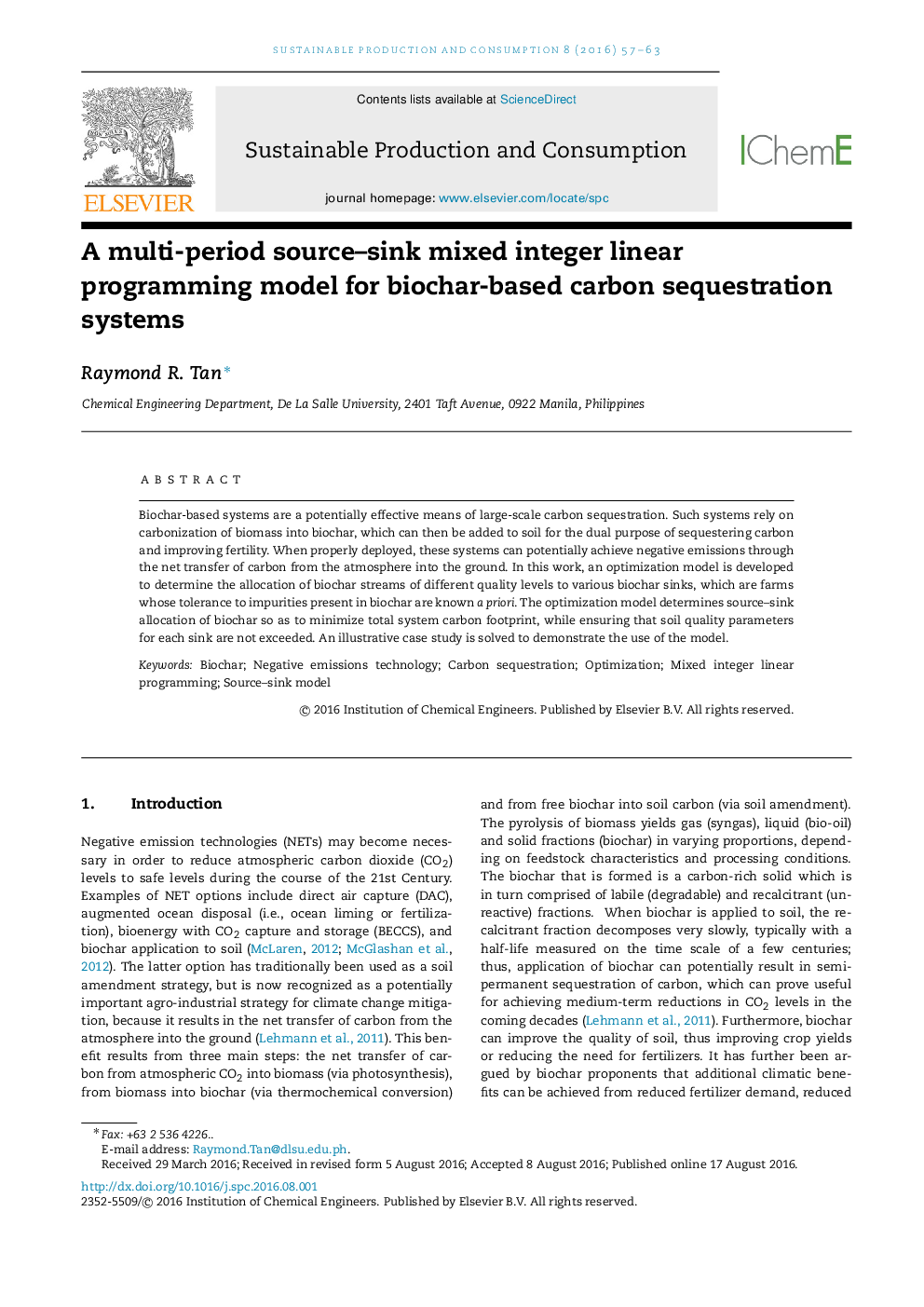| Article ID | Journal | Published Year | Pages | File Type |
|---|---|---|---|---|
| 7107500 | Sustainable Production and Consumption | 2016 | 7 Pages |
Abstract
Biochar-based systems are a potentially effective means of large-scale carbon sequestration. Such systems rely on carbonization of biomass into biochar, which can then be added to soil for the dual purpose of sequestering carbon and improving fertility. When properly deployed, these systems can potentially achieve negative emissions through the net transfer of carbon from the atmosphere into the ground. In this work, an optimization model is developed to determine the allocation of biochar streams of different quality levels to various biochar sinks, which are farms whose tolerance to impurities present in biochar are known a priori. The optimization model determines source-sink allocation of biochar so as to minimize total system carbon footprint, while ensuring that soil quality parameters for each sink are not exceeded. An illustrative case study is solved to demonstrate the use of the model.
Related Topics
Physical Sciences and Engineering
Chemical Engineering
Process Chemistry and Technology
Authors
Raymond R. Tan,
